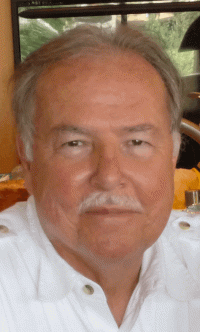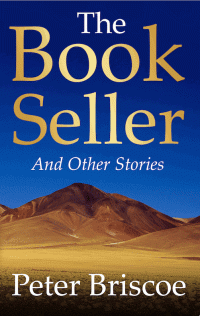_w370_h378/RMK2(1)_12250554.gif)
Reading the Map of Knowledge
The Art of Being a Librarian
Published by Palo Verde Press
Editorial Reviews
From Library Journal"What an interesting treatise Briscoe (associate university librarian, collection development, Univ. of California, Riverside) presents for professional librarians! In the esteemed tradition of legendary pamphleteers, Briscoe advances his philosophical framework of librarianship, which challenges equally those genuinely aspiring to the highest professional standards as well as the 'technocrats' who pride themselves on their voluminous listings of citations that flash across their screen. His codification is structured on a mapped model to understand any library collection and, most importantly, on his fervent plea for librarians to be worthy of their name by becoming knowledgeable, tenacious readers (real readers) of books (real books). While certainly a highly personal perspective of what ought to be the characteristics that any librarian would uphold, alas, with his own admission that 'many librarians do not even have reading on their list of things to do,' we might still have some work ahead of us. Briscoe's conceptual map of knowledge includes the index that identifies and locates other works, the encyclopedia of reference works that summarize other works, the canon that embodies the current state of knowledge, and the archive that consists of all other works. This map and Briscoe's entreaty to read, in order to become critical thinkers, support the ageless philosophy of Mortimer Adler (How to Read a Book) and the contemporary work of Harold Bloom (How to Read and Why). Required reading for MLIS students and librarians searching for meaning in their chosen discipline. Highly recommended."—Dale Farris, Groves TX.
From The Journal of Academic Librarianship
"Briscoe's work is one of far too few (if any) that posits a challenge to unbookish librarians....[It] expresses dissent with an infatuation with technology and engages debate about bibliography and the librarian's role in knowing and leading readers to the print canon: those 'works of highest knowledge' that represent the 'essential part of the library'....At a time when librarians have only the smallest chance for practicing and instilling serious lifetime reading habits, the reviewer rejoices in Briscoe's proposed model for accomplishing both."—Amanda Cain, West Chester University Library, PA.
An Interview with the Author (Excerpts)
From Against the Grain"I wrote the pamphlet because I was alarmed by the growing number of aliterate librarians. The term is an oxymoron, but the phenomenon is widespread. It denotes librarians who no longer bother to read...especially books. I find them everywhere, from recent library school graduates to library directors. But the alarm bell went off when I noticed the phenomenon among my own colleagues—collection development officers of research libraries—formerly a highly literate group. When I was a young CDO twenty years ago, I was very impressed by the level of culture of my colleagues, nearly all of them older than I. Dinner table conversation was sparkling. They were well read, well traveled, often knew one or two foreign languages, and loved the arts. A number of them were amateur musicians. It goes without saying that they knew the book trade intimately and enjoyed the company of booksellers. What a change has taken place! Today, at the dinner table, I almost never hear my colleagues discuss exciting books or plays they've seen or even good movies. Instead, they're apt to pass around pictures of their dogs.
"I agree with the late Frances Clarke Sayers (professor of library service at UCLA and author of Summoned by Books) that a librarian who doesn't read is fundamentally no good. The problem of quantity, of there being too many books to read, has always been with us. The Book of Ecclesiastes registers the first known complaint. And since then things have only gotten worse—a lot worse—which is precisely why the world needs librarians! If we become overwhelmed and paralyzed, if we cease selecting good books to read, and finally cease reading ourselves, we are frauds. In my pamphlet, I explore the problem and offer some approaches to deal with it (provided one isn't lazy) including this advice from Lawrence Clark Powell: 'How does the librarian find time for books? I want you to listen carefully while I give the answer, for it is a precious secret I am about to disclose. One finds time for books by taking it.' "—Interview conducted by Bob Nardini, Senior Vice President & Head Bibliographer, Yankee Book Peddler Library Services.
The pamphlet was published in 2001. Printed on archival-quality paper in an edition of 500 copies.
Paperback | 29 pages
| $15.00 USD
| 6 x 9
| 978-0-9634898-1-4
| December 24, 2020


